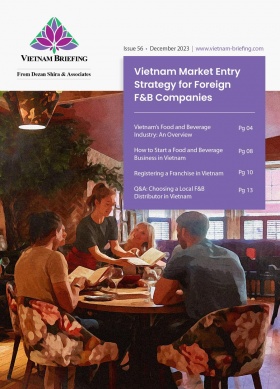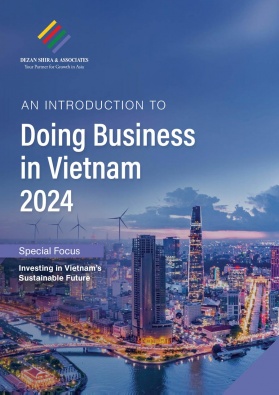Australia-Vietnam Collaboration on Sustainable Development
Australia and Vietnam are collaborating in a number of ways on green and sustainable development. Here’s what that looks like.
Australia and Vietnam are deepening cooperation on green and sustainable development through a range of new agreements and programs.
Vietnam’s green economy has huge growth potential, driven by the country’s growing middle class, burgeoning business landscape, and wealth of natural resources and conditions favorable to green energy production.
Cooperation on green development aligns closely with the two countries’ national goals. While Vietnam strives to achieve net zero emissions by 2050, Australia seeks to reduce its economy’s considerable reliance on the export of coal and gas, including to countries in Southeast Asia.
As two important economies in the Asia-Pacific, Australia and Vietnam already have a well-established trade and investment relationship, which will continue to mature. In 2022, bilateral trade between Australia and Vietnam reached A$25.7 billion, increasing 62 percent from the 2020 to 2021 period, according to the Australian think tank Asialink.
At the same time, Vietnam’s energy transition faces a wide range of hurdles, not least of which is the huge number of resources required to sustain the country’s economic ambitions and meet its climate pledges. According to the Australian Department of Foreign Affairs and Trade (DFAT), Vietnam will need around US$115 billion to US$140 billion in investment in energy generation and transmission to meet its electricity demand up until the year 2030.
The expansion in climate cooperation presents a host of new opportunities for Australian businesses to invest in Vietnam’s green economy, and help to diversify the Australian economy away from fossil fuels.
Australia-Vietnam cooperation on green development
In the last few years, Australia and Vietnam have committed to a broad range of green energy investment and cooperation agreements, with several commitments made in the year 2023.
In August 2019, the governments of Vietnam and Australia agreed to develop the Enhanced Economic Engagement Strategy (EEES), which covered the period from 2020 to 2023. This strategy aimed to turn Vietnam and Australia into “top ten trade partners” and “double two-way investment”.
In 2022, Australia was Vietnam’s seventh largest trade partner, according to Asialink. However, Australian investment flows to Vietnam reached A$1.8 billion, up only 30 percent from 2020, according to the DFAT, suggesting considerable room for improvement.
Since 2021, Vietnam and Australia have been considering elevating the bilateral relationship to that of a Comprehensive Strategic Partnership (CSP), a bilateral cooperation and investment agreement that would see the two parties commit to increased collaboration on economic and societal development. Australian Prime Minister Anthony Albanese last suggested progress on the development of the CSP during a meeting with Vietnamese Prime Minister Phạm Minh Chinh at the sidelines of the 43rd ASEAN Summit in Jakarta in September 2023. During this meeting, he called for finalizing “the necessary internal procedures”.
Australia currently has a CSP with the ASEAN region, of which Vietnam is a member country.
In July 2023, DFAT released details on a proposed program to invest in Vietnam’s economic growth over an initial period of five years. Under the proposed Australia-Vietnam Partnership for Economic Growth, Australia will commit to investing A$75 million into Vietnam between 2024 and 2029, with the possibility of another five-year extension.
A core focus of this program is Vietnam’s green energy transition. The program will seek to support the Government of Vietnam with the rapid energy transition required to overcome obstacles to achieving its 2050 climate emissions target. This will include assisting the Vietnamese government in advancing climate change mitigation measures, increasing electricity supply while reducing carbon emissions, ensuring stable energy supply and prices, and facilitating “cross-border power trading with neighbouring countries”.
The plan will be implemented through a “two-step procurement process”, details of which are to be released by the end of the first quarter of 2024. The plan is then expected to be set in motion by mid-2024.
The Australian government has also pledged funding to help Vietnam reach its economic and climate goals. In June 2023, following talks with Prime Minister Phạm, Prime Minister Albanese announced an A$105 million package toward clean energy adoption and clean energy infrastructure. The funds will also go to support the Vietnamese government in updating the country’s mining law to enable foreign investment in critical minerals.
Following this, in August 2023, Australian Foreign Minister Penny Wong announced A$94.5 million in funding for climate change adaptation in the Mekong Delta, an area particularly vulnerable to the impact of climate change.
In addition to government initiatives, there are several business facilitation programs with government backing. One such program is the Australia-Vietnam Green Economy Program, a program developed by the think tank Asialink and Climateworks Centre and backed by the DFAT.
The program aims to “facilitate two-way trade and investment between Australia and Vietnam’s green economies” by providing knowledge and research on Vietnam’s green industries and fostering connections with Vietnamese counterparts.
Opportunities for Australian companies in Vietnam’s green transition
The capital investment required for Vietnam’s energy development presents significant opportunities for Australian companies engaged in sustainable fields. These opportunities range from providing products and services for renewable energy projects to auxiliary industries such as energy conservation and the construction of climate-resilient infrastructure.
In particular, the wind and solar industry in Vietnam holds great potential. With its extensive coastline, Vietnam has significant wind energy capacity, yet it is currently underutilized. Similarly, solar power potential is considerable but remains largely untapped. Australian companies specializing in wind and solar energy technology can leverage their experience and established supply chains to meet Vietnam’s growing demand for renewable energy solutions.
Another important area of the green transition is improving Vietnam’s climate resilience. Vietnam is extremely vulnerable to the adverse effects of climate change, in particular the increased incidence of extreme flooding and typhoons. According to a World Bank report, the effects of a warming planet could cost Vietnam around 12 to 14.5 percent of its GDP by 2050 if no concerted measures are taken.
Australian expertise in climate-resilient infrastructure and sustainable agriculture can contribute to Vietnam’s efforts to mitigate the impacts of climate change. Areas such as flood risk management, coastal protection, and climate-resilient agricultural practices offer opportunities for collaboration between Australian and Vietnamese companies.
Furthermore, Australia’s leadership in sustainable finance can support Vietnam’s transition to a green economy. By investing in renewable energy projects, climate-resilient infrastructure, and energy efficiency initiatives, Australian companies can contribute to Vietnam’s sustainable development goals while also generating economic growth.
One area of focus is the mining and processing of rare earths, which are vital components in various renewable energy technologies such as wind turbines, electric vehicles, and solar panels. According to Asialink, Vietnam has considerable untapped mineral resources, which include the world’s second-largest deposits of rare earth metals. While access to the industry for foreign investment is subject to certain restrictions, continued collaboration between Australia and Vietnam may open up more opportunities for Australian companies.
Meanwhile, Australian companies specializing in advanced mining technologies and sustainable mineral extraction practices can partner with Vietnamese counterparts to explore and develop mineral deposits in Vietnam. As stated in a knowledge-sharing paper by the Australia-Vietnam Green Economy Program, “Vietnam’s potential as a trusted partner of Australia for processing rare earths, could allow the two nations to strengthen resource security and diversify supply chains. Jointly developing the critical mineral sector could attract foreign investment and open doors to global markets”.
Finally, Australian expertise in sustainable agriculture can further contribute to Vietnam’s green transition by introducing advanced farming techniques, precision agriculture technologies, and eco-friendly farming practices. This includes methods for soil conservation, water management, and integrated pest management, as well as the use of renewable energy solutions for agricultural operations.
Moreover, sustainable agriculture not only enhances environmental sustainability but also boosts economic resilience by improving crop yields, reducing input costs, and enhancing market access for Vietnamese farmers. Sustainable agriculture also plays a crucial role in mitigating climate change by sequestering carbon in soil, reducing greenhouse gas emissions from agricultural activities, and enhancing ecosystem resilience to extreme weather events. By adopting sustainable agricultural practices, Vietnam can contribute to its climate goals while ensuring food security and livelihoods for its population.
About Us
Vietnam Briefing is published by Asia Briefing, a subsidiary of Dezan Shira & Associates. We produce material for foreign investors throughout Asia, including ASEAN, China, and India. For editorial matters, contact us here and for a complimentary subscription to our products, please click here.
Dezan Shira & Associates provide business intelligence, due diligence, legal, tax and advisory services throughout the Vietnam and the Asian region. We maintain offices in Hanoi and Ho Chi Minh City, as well as throughout China, South-East Asia, Dubai, and India. For assistance with investments into Vietnam, please contact us at vietnam@dezshira.com or visit us at www.dezshira.com.
- Previous Article Vietnam’s Cross-Border Payments Infrastructure and ASEAN
- Next Article Vietnam’s Digital Infrastructure Master Plan to 2030: Roadmap to a High-Tech Future







